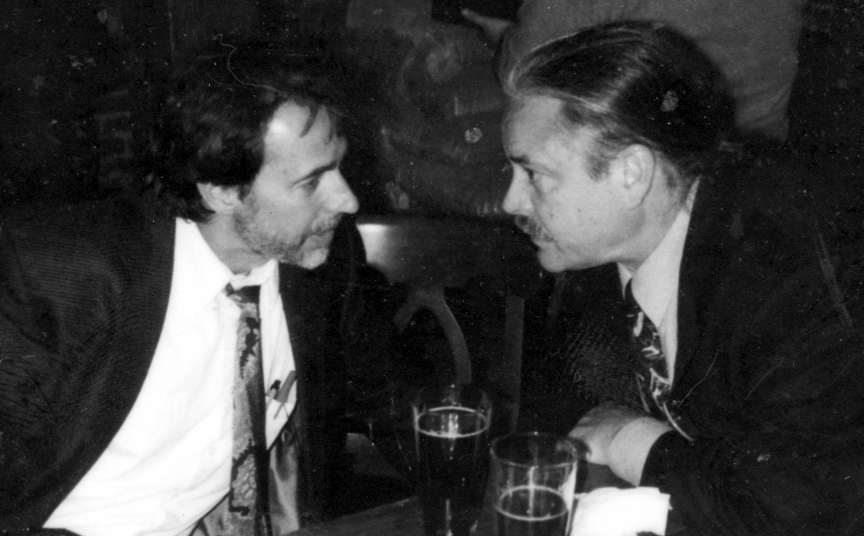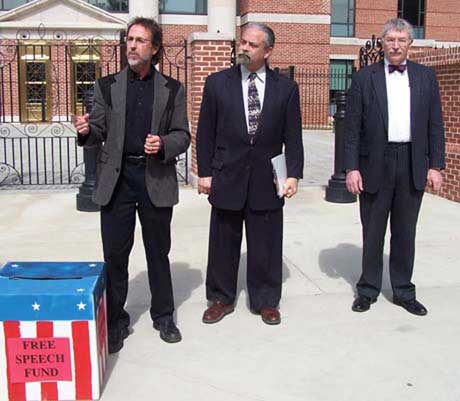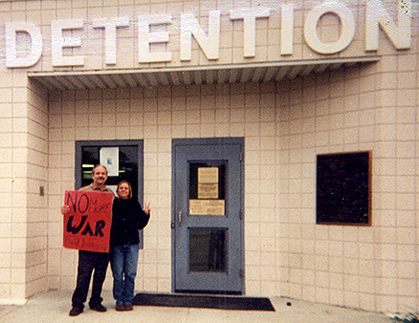The spring session of the Modjeska Simkins School has not gone as planned. Turns out, the student orientation on March 15 was the first and last time the group would meet in person. The extent of the threat posed by the coronavirus in South Carolina was just becoming clear.
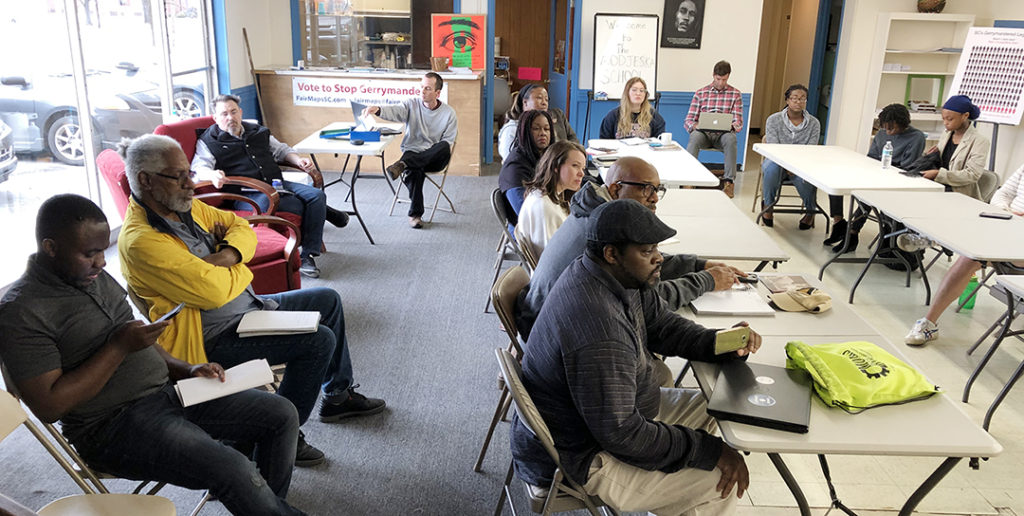
The crisis forced our classes online. While the format is not ideal, it does have its benefits, one being that classes are recorded so students can see material they missed or want to revisit. We are offering access to the course readings and class recordings as a gift to our friends and allies, hoping they may educate and inspire in these tough times.
The school’s faculty co-ordinator, Dr. Robert Greene, a professor at Claflin University, said, “The COVID-19 pandemic has forced many people around the world to take refuge in their homes. The hope of ‘flattening the curve,’ the attempt to get the virus to a manageable level for health care systems around the world, is now underway. With so many people at home, numerous universities and libraries across the world have opened their online archives to everyone who is hungry for knowledge.
“In that same vein, the SC Progressive Network’s Modjeska Simkins School is also opening its virtual doors. Our study guides and filmed lectures offer a rich vein of information about South Carolina’s long history of oppression and hope. Despite the darkness of the pandemic dimming the dreams of many, we hope that you will find our resources valuable to preparing to build a better world after the pandemic has run its course. After all, Modjeska Simkins herself believed both in knowing one’s history, and in making public health among disadvantaged communities an important priority.”
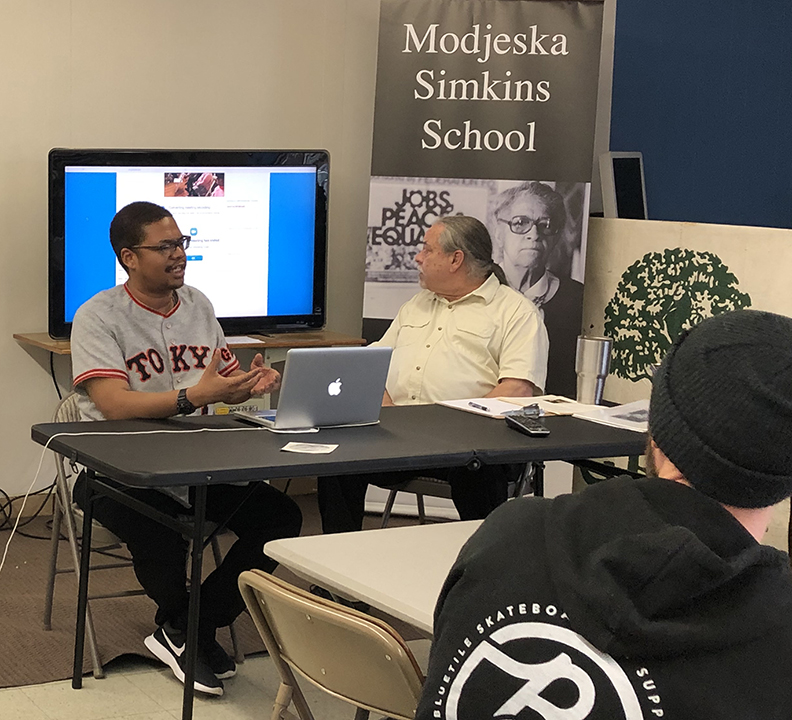
It has not been the experience students signed up for, but they have adjusted without complaint to meeting on Zoom. In years past, students often stayed after class to talk with the professors and classmates. To make up for that lack of personal interaction, the school added extra sessions for students to ask questions, offer suggestions, and comment on the course so far.
Jacob Twitty said, “I have thoroughly enjoyed it and have learned so much. A lot of the history didn’t come as a surprise — the details — but the Reconstruction era just fascinates me. The more I learn about that, the more I wonder how South Carolina as a state would be different if we had continued in that regard. It’s amazing to see how we far we have gone the other way in spite of the rich history that we have here.”
Lewis Pitts, a reformed NC lawyer who has been a guest speaker at the school since its first session in 2015, is able to attend the entire program this time because he can join on Zoom. “What struck me about the Reconstruction period is that when we actually expanded democracy to include more people, particularly African-American freed slaves, we had a much more progressive agenda. Public education, there are many things white Americans should be thanking that period for. The more we pull the blanket of democracy down to cover all the feet in the bed, the more warmth and the more progress is shown for all of our society.”
“I am really enjoying the course,” Dr. Bernie Gallman said in an email. The scholar of African roots and the pre-colonial advanced culture added, “The course syllabus for all the classes are outstanding.”
The history portion of the session ended on May 18. The remaining classes will be about political theory, and conclude with student presentations of projects they will commit to upon graduation.
• Click here for class schedule and links to course material.
• Click here to access class recordings, updated each week.
The Modjeska Simkins School is a project of the SC Progressive Network. The next session is tentatively scheduled for this fall.

